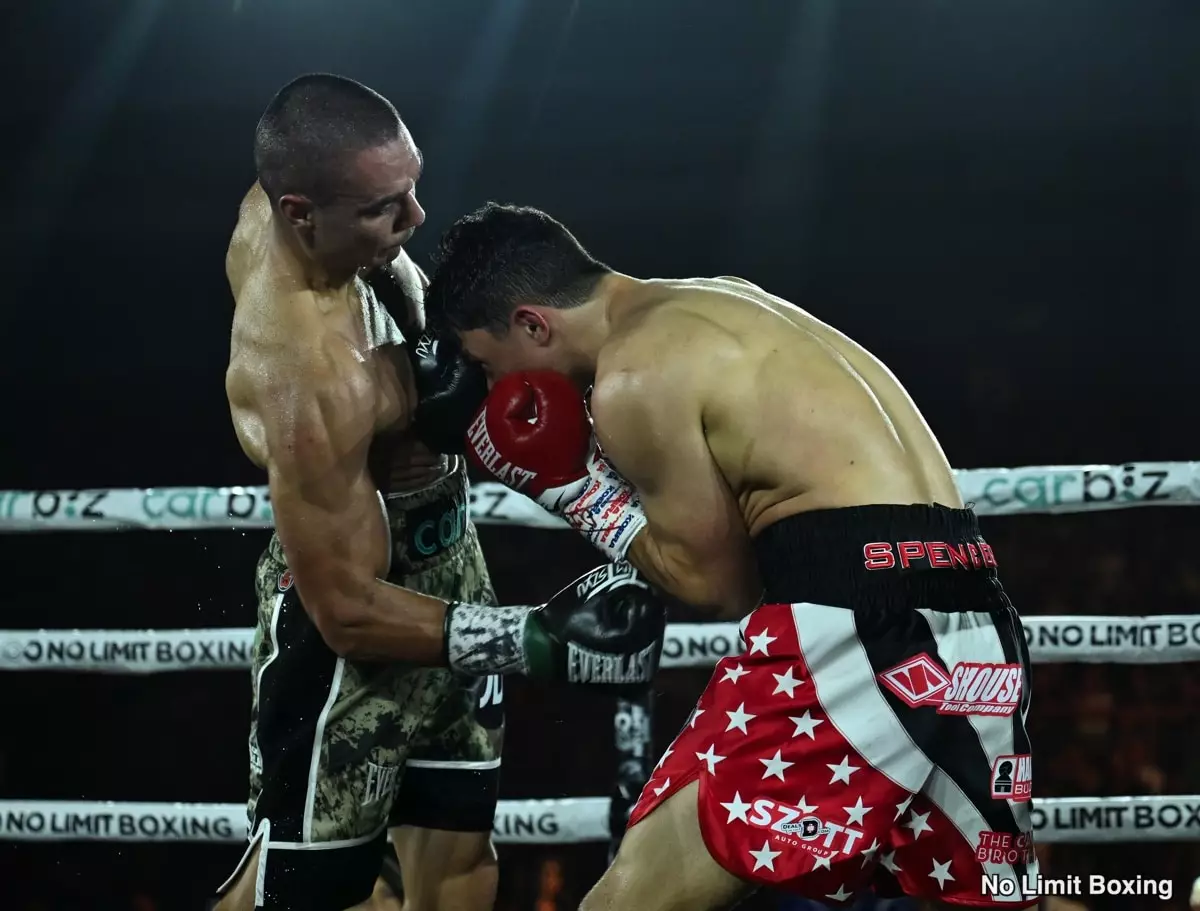Tim Tszyu’s recent triumph over Joey Spencer marks a pivotal moment for the Australian boxer, a stark contrast to the disheartening defeats he faced against Sebastian Fundora and Bakhram Murtazaliev. It’s as if he has emerged from a shadowy abyss, finding clarity and confidence through that decisive fourth-round knockout. This victory didn’t just help in enhancing his career trajectory; it signaled his mental and emotional rehabilitation following a series of setbacks.
Boxing, for many, is much more than a physical endeavor; it involves intense mental fortitude. Tszyu’s fighting spirit, fueled by his recognition of previous missteps, illustrates not only a commitment to his sport but an awareness of his psyche’s fragility. When he expertly dispatched Spencer, it was a clear sign that Tszyu was ready to reclaim his rightful position as a formidable contender in the ring.
Upcoming Clash with Keith Thurman: A Battle Against Time
The anticipation surrounding Tszyu’s upcoming bout against Keith Thurman represents both a challenge and an opportunity. Thurman, a seasoned fighter at 36, carries an illustrious history, holding the WBC and WBA welterweight titles. However, his recent performances raise questions about his capability. Emerging from a two-year hiatus, he put on a clinical display against Brock Jarvis; yet, the stylistic choice of his opposition indicates a level of calculated safety rather than competitive integrity.
Tszyu’s choice to face Thurman rather than seek immediate retribution against Murtazaliev has ignited a conversation among boxing aficionados. Wouldn’t securing a rematch to rectify his past loss be a bolder move? One can argue that not facing Murtazaliev, a man who knocked him out, diminishes his competitive integrity. However, perhaps Tszyu’s strategy lies in cautiously rebuilding his reputation; a calculated risk versus an emotionally charged fight could safeguard his burgeoning momentum.
The Chess Game of Boxing: Strategy Over Bravado
Tszyu’s statement on feeling “in the zone” during the Spencer fight highlights an intriguing psychological element of boxing—what might be interpreted as ‘fight intelligence’. Psycho-emotional conditions significantly influence performance in combat sports. Tszyu’s acknowledgment of battling mental demons, especially from his past loss, indicates a shrewd understanding of the fight game; fighters aren’t just confronting their opponents—they’re often grappling with their own fears and anxieties.
The notion of PTSD as Tszyu describes it cannot be overlooked. Struggling with residual feelings from a traumatic situation complicates a fighter’s ability to embrace aggression and strategy alike. He seems to have turned a corner, harnessing his experiences to become a more formidable opponent. This renewal of focus and achieving emotional clarity exemplifies a crucial lesson for aspiring athletes: the path to greatness is as much mental as it is physical.
Thurman’s Relevance in the Prime Era
Observing Thurman’s performances elicits a sense of nostalgia mixed with skepticism. Once heralded as one of the most electrifying fighters in the welterweight division, his uncharacteristic lack of speed and agility after prolonged inactivity raises questions. Time robs every athlete, yet it appears to have taken an especially harsh toll on Thurman.
Boxing fans crave excitement; they want to witness bouts that spark adrenaline. Yet, Tszyu’s decision to engage with an aging champion, whose once-daunting capabilities are now overshadowed, might seem counterintuitive. Would it not be more compelling to push for fights against the younger, rising fighters that fans are buzzing about? There is an air of restlessness when considering Tszyu’s fighting choices, which begs the inquiry: Is it about consolidating his career gains, or is there an underlying concern of clinging to fame rather than forging a true legacy?
Through this convoluted landscape of ambition and fears, Tszyu stands at a crossroads. The man who knocked out Spencer needs to confront not just his opponents but also the internal battles that have haunted him. If he plays his cards right, he could redefine his legacy—not just as a fighter who returned from the brink, but as one who thrived in the face of adversity, continually rising against the odds that boxing so frequently presents.


Leave a Reply